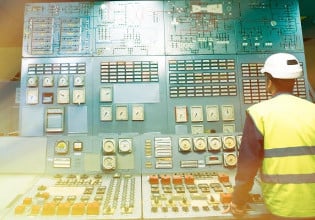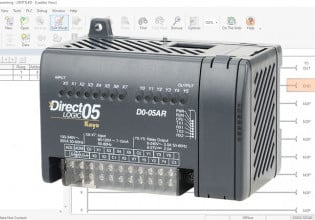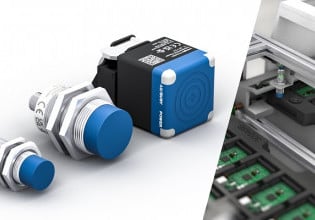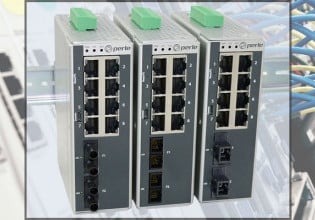Mitsubishi Electric and ModuleWorks Unite To Strengthen Machine-tool Software Development
Mitsubishi Electric has partnered with ModuleWorks to advance digital transformation through the development of software for machine-tool simulation and CAD/CAM data integration.
Technology giant Mitsubishi Electric announced plans to continue collaborating with and begin investing in software provider ModuleWorks. The two companies will combine their expertise to create and market advanced software for simulating machining processes and integrating data with computer-aided manufacturing (CAM) and computer-aided design (CAD).

ModuleWorks’ Founder and Managing Director (left) and Mitsubishi Electric’s Senior Manager (right) outside ModuleWorks’ main office in Aachen, Germany. Image used courtesy of ModuleWorks
CAD/CAM Integration
CAD/CAM integration enables manufacturers to design and refine machining-tool paths, involving setting feed rates, selecting cutting tools, and reducing tool wear and tear. Advanced toolpath planning enhances precision and efficiency in machining, ultimately improving overall productivity.
Using CAD/CAM can help optimize manufacturing processes by aiding data flow between the design and manufacturing stages. CAM software generates machining instructions based on the ingress of CAD data. The integration allows for the flow-through of the latest design information, essential for precise and effective machine tool path planning.
Integrating CAD and CAM enables manufacturers to enhance toolpaths by considering design geometry. This optimization considers various factors, including material properties, tool capabilities, and manufacturing constraints. Consequently, it improves the efficiency of the machining process, reducing unnecessary tool movements and shortening production time.

Mitsubishi and ModuleWorks are setting out to digitally transform manufacturing processes through integrated software solutions and simulation technology. Image used courtesy of ModuleWorks
Collaboration and Standardization
CAD/CAM integration also enables design and manufacturing teams to collaborate, sharing ideas across a digital model to achieve an optimum design. In this way, the design, development, and implementation of machining processes can continue without undue, costly delay.
Integrating CAD and CAM data fosters uniformity and standardization in manufacturing procedures. Consistent procedures and the planning of toolpaths using precise CAD data contribute to a manufacturing process that is more dependable and can be replicated with greater reliability.
Design Adaptation and Training
In the ever-evolving manufacturing industry, alterations in design or production needs are frequent. Simulation software enables engineers to promptly adjust to these changes by digitally testing and optimizing modified processes before implementing them in manufacturing. Engineers can also use simulation environments of real-world scenarios (such as digital twins) to train and become proficient at understanding and adapting machine systems and processes on the shop floor.
Digital twin technology facilitates predictive analytics by examining historical and current data. Engineers can leverage this data to foresee potential challenges in machine-tool paths, such as tool wear or material deformation. Anticipating these challenges enables engineers to adjust the paths, proactively ensuring precision maintenance during manufacturing. This technology helps manufacturers avoid unnecessary downtime and costly maintenance repairs.

Simulation enables users to test processes before implementing them in a real-world environment. Image used courtesy of Adobe Stock
Circular Digital Engineering
The Mitsubishi-ModuleWorks partnership is intended to grow Mitsubishi's Circular Digital-Engineering business model by analyzing customer data and providing more tailored machine-tool solutions. The idea is to promote the use of digital transformation technologies and enhance knowledge transfer. Mitsubishi is using its Circular Digital-Engineering model to enhance business sustainability and help provide solutions that engender social and economic value. It believes its partnership with ModuleWorks will accelerate this process.






